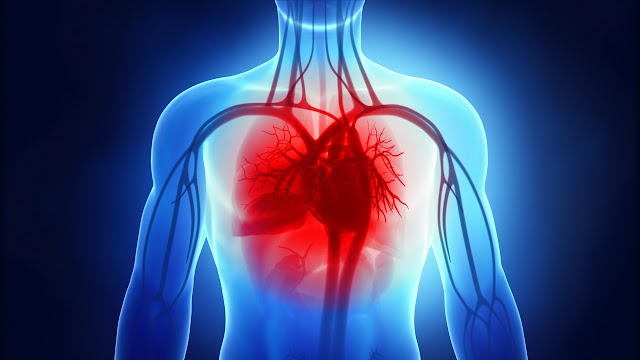HEART FAILURE AND ITS TREATMENT
Stress resistance in today's
world is a huge luxury. Constant domestic worries, problems at work, quarrels
with loved ones undermine our nerves and negatively affect the work of the
whole organism.
The cardiovascular system is one
of the first to suffer. If you feel that your heart is failing more and more
often, it will be useful to consult a cardiologist. You can always get
qualified advice at the gastrointestinal consultants Medical Center.
Many people panic when they hear
this diagnosis, mistakenly associating it with cardiac arrest. In fact, timely
detection and treatment of the disease will not complicate your life.
What is heart failure?
Heart failure is a pathological
condition in which the heart does not work hard enough to ensure the normal
functioning of the body. In other words, it does not pump blood at the right
speed and force, so less oxygen and nutrients enter cells and organs. In
addition, such a pathological process provokes an overload of the heart, which
already works weakly.
The body's efforts to improve
blood supply lead to an increase in heart rate and a gradual weakening of the
walls of the heart muscle.
The body reacts to such actions
in its own way: it tries to retain fluid (water) and sodium in the middle of
the body, thereby overloading it. Externally, it manifests itself as swelling
in the hands, feet, ankles, feet, lungs or other organs. Such a systematic
failure is called chronic heart failure.
Several adverse factors can cause the disease:
Coronary heart disease is a
pathological condition of the arteries that supply blood to the heart. If these
arteries are severely narrowed or blocked, the heart experiences a lack of
oxygen and nutrients;
heart attack (acute heart
failure) provokes a sudden blockage of the coronary artery. As a result, blood
flow is stopped and all or part of the heart muscle is left without oxygen. A
heart attack can result in serious damage to the heart muscle;
cardiomyopathy is a lesion of the
heart muscle that provokes infections, alcohol or drug abuse;
cardiac fatigue due to high blood
pressure (hypertension), valve disease and congenital heart disease, diseases
of the endocrine system, including diabetes, and kidney disease.
The disease can occur as a result of exposure to several factors.
The insidiousness of this disease
is that it may be completely asymptomatic or the symptoms are vague and
intermittent.
Chronic heart failure has the
following symptoms:
stagnation in the lungs is
manifested by shortness of breath, even with minimal exercise (eg, climbing
stairs) or difficulty breathing at rest, sometimes dry cough;
water retention. Impaired blood
supply to the kidneys provokes water retention in the body. Externally, it is
manifested by swelling of the ankles, legs, abdomen, general weight gain.
Frequent urination at night, nausea and loss of appetite may also be symptoms;
dizziness, fatigue and weakness.
Constant feeling of fatigue and weakness is caused by insufficient oxygen
supply to the main organs and systems of the body. Lack of oxygen in brain
cells causes frequent dizziness and confusion;
rapid or irregular heartbeat. In
an effort to compensate for the nutrient deficiency, the heart tries to pump
blood as quickly as possible. This can be followed by a fast and uneven pulse.
If you have one of the symptoms
of heart failure, consult a cardiologist for a more accurate diagnosis, because
these signs may signal other diseases of the cardiovascular system. We
recommend that you seek the advice and assistance of specialists from the
Echocor Medical Center.
Types and degrees of heart failure
in systolic insufficiency, the
heart muscle does not contract with the necessary force, as a result, the body
pumps less oxygen-rich blood;
in diastolic insufficiency, the
heart contracts with normal force, but the ventricles do not relax properly or
are stiff, so less blood enters the heart during filling.
Echocardiography is used to
determine the type of pathology.
Treatment of the disease
Treatment of heart failure begins
with a correct diagnosis. You should tell your doctor about your symptoms (if
any).
In addition to the above causes
of coronary heart disease, angina and others, tell your cardiologist about bad
habits: smoking, alcohol or drug addiction. Even the fact that you occasionally
drink alcohol matters. Every detail is important for a correct diagnosis. The giandliverconsultants provide the best
For a more effective treatment of
heart failure, a general blood test may be prescribed, including the presence
or absence of anemia (insufficient oxygen saturation).
Doctors at the Irvine Center also
often prescribe chest X-rays, which can diagnose congestive pneumonia, which is
a frequent companion of heart failure.
Echocardiography will help
determine the movement and structure of the heart, and its electrical impulses
- electrocardiogram.




Comments
Post a Comment